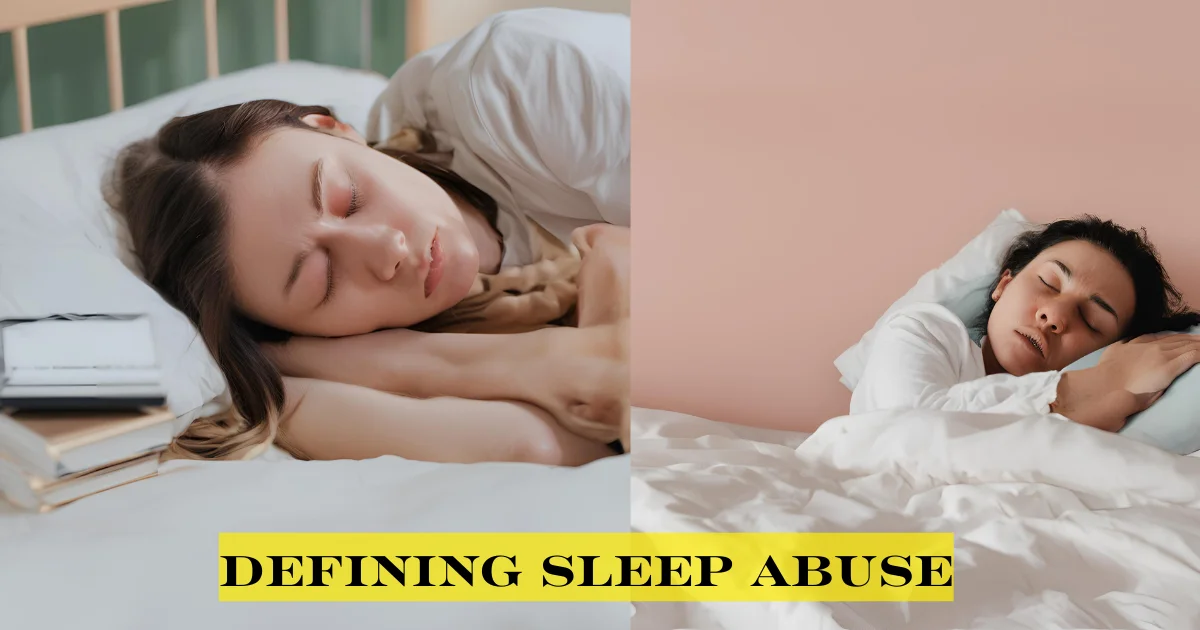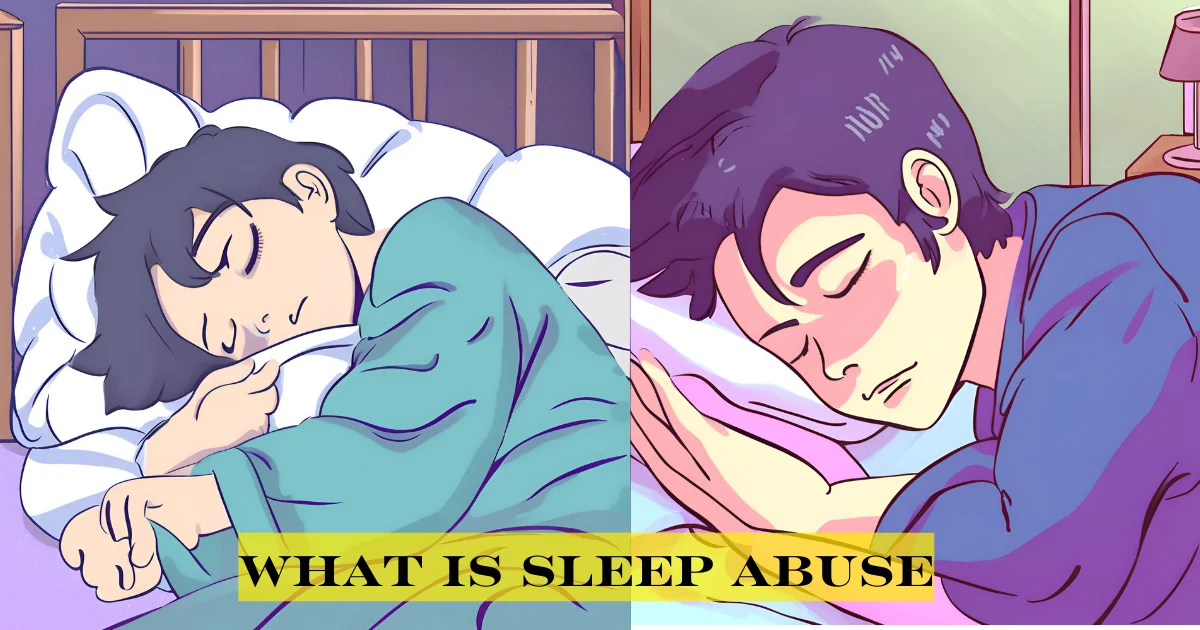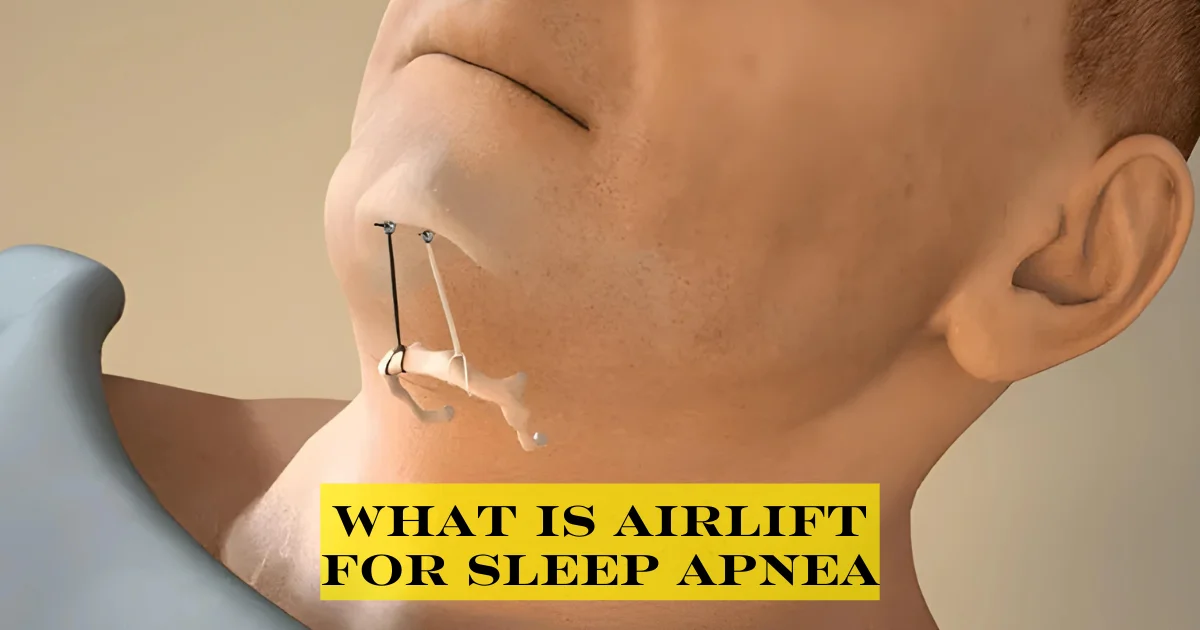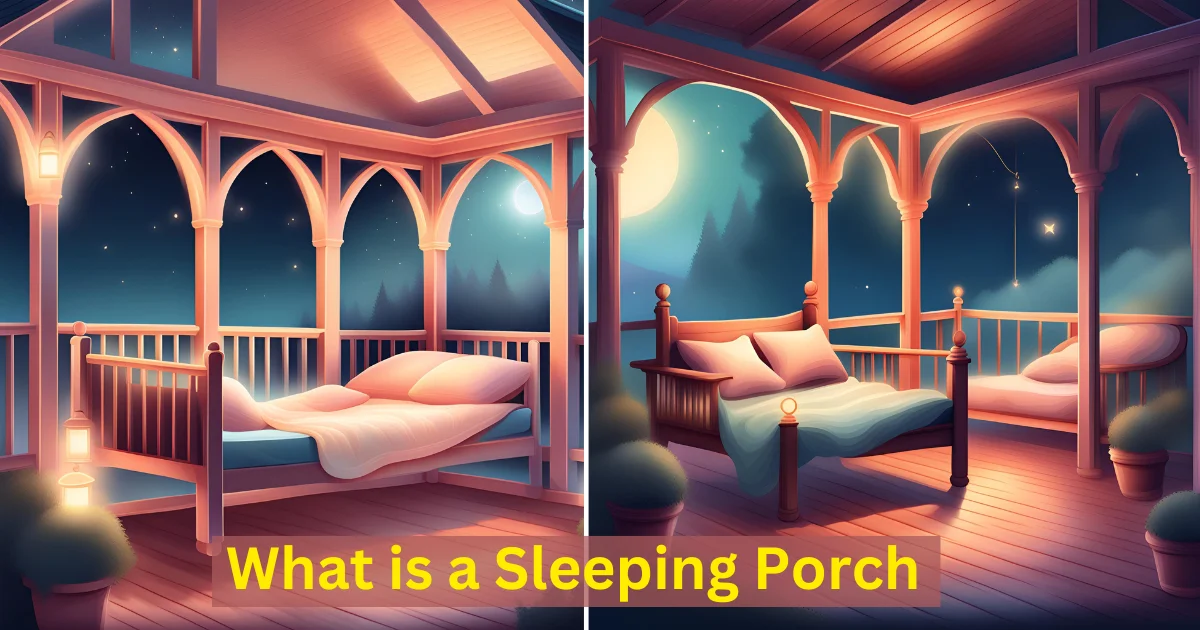Sleep is a vital human function required for survival. However, many people do not get adequate, quality sleep due to behaviors and lifestyles that constitute sleep abuse. Sleep abuse encompasses the various ways in which individuals regularly restrict, disrupt, or behave counterproductively to sleep requirements. The effects of sleep abuse on mental and physical health will be analyzed. Sociocultural attitudes and structural factors contributing to endemic sleep abuse will also be discussed. Finally, potential solutions from the individual to population level will be proposed for addressing the prevalent issue of sleep abuse in society.
Defining & What is Sleep Abuse

Sleep abuse refers to habitual behaviors and lifestyles that reduce sleep quantity or quality below optimal levels needed for health, safety, and wellbeing. While occasional sleep loss is generally well tolerated, chronic sleep abuse has cumulative detrimental effects. Behaviors that can constitute sleep abuse include:
Sleep deprivation – consistently not getting 7-9 hours of sleep needed by most adults
Poor sleep hygiene – behaviors like inconsistent bedtimes/waking times, alcohol before bed, stimulating activities before bed, uncomfortable sleep environment that disrupts sleep
Frequent jet lag and shift work – lead to circadian rhythm disruption
Taking medications that impair sleep – CNS stimulants, illicit drugs
Sleep disorders left untreated – sleep apnea, insomnia, restless legs syndrome
Using sleep as a low priority – habitually staying up late and cutting back on sleep
These behaviors interact with each other to undermine sleep quantity and quality. Although individual choices play a role, there are broader socio-cultural and occupational pressures that systematically cause sleeps abuse.
Prevalence and Causes

Sleep abuse in the form of insufficient sleep and sleep disorders is extremely prevalent. An estimated 50-70 million Americans have a sleep disorder. Nationally-representative surveys indicate that around 30% of adults report getting less than the recommended 7 hours of sleep. Only 65% of children are getting the 9-12 hours recommended for their age group. Sleep abuse starts early – by high school, 40% of teens are sleep-deprived.
Behaviors causing sleep abuse include poor sleep habits, stimulating activities before bed, inconsistent sleep schedules due to lifestyle demands, and dismissing the importance of quality sleep. The consumption of caffeine, alcohol, and screen time before bed all interfere with sleep. Untreated sleep disorders like insomnia, sleep apnea, nighttime reflux/heartburn, and periodic limb movements also prevent restorative sleep. Chronic stress and associated conditions like anxiety, depression, and chronic pain disrupt sleep regulation pathways.
Broader sociocultural attitudes, workplace practices, and environmental factors also drive sleep abuse. Competitive societies prioritize productivity over self-care. Work schedules including shift work, long work hours, and changing time zones on travel all conflict with circadian rhythms. 24/7 lifestyles and the availability of round-the-clock activities, entertainment, and technology delay bedtimes. Light pollution from excessive artificial light exposure at night also suppresses melatonin and disrupts circadian biology. These interwoven individual lifestyle factors and larger systemic issues propagate cycles of sleep abuse.
Consequences of Sleep Abuse
Sleep abuse has profound consequences spanning nearly all aspects of health and well-being. Even small amounts of sleep loss take a toll on cognition, mood, and performance. Sleep deprivation impairs attention, memory, decision-making, learning, and reaction time which reduces work productivity and increases accidents. Mood suffers with increased irritability, anxiety, depression, and emotional volatility. The body’s inflammatory and metabolic processes become dys-regulated which contributes to systemic disease.
The long-term physical health effects are significant. Short sleep duration is linked to cardiovascular disease, hypertension, diabetes, obesity, and cancer. Sleep deprivation weakens the immune system increasing susceptibility to infections. Sleep apnea raises cardiovascular risk. Sleep loss is also associated with earlier mortality. The effects on mental health are equally serious. Sleep deprivation exacerbates psychiatric conditions like bipolar disorder, depression, anxiety disorders, PTSD, ADHD, and substance abuse. Cognitive deficits from poor sleep undermine school performance. Daytime fatigue from sleep abuse also causes traffic and occupational accidents. Drowsy driving causes thousands of deaths annually. Poor sleep quality reduces quality of life and overall vitality.
Sociocultural Attitudes and Systemic Causes
Sleep abuse is often framed as an individual choice and personal responsibility. However, wider sociocultural norms and economic structures are more culpable. Western societies have glorified burnout culture which praises working excessive hours on little sleep. Rest and sleep are seen as unproductive which pushes people to cut back on sleep to work and achieve more. Technology has enabled 24/7 work schedules that bleed over into personal time. The modern lighting environment disrupts circadian biology by suppressing evening melatonin secretion making it harder to fall asleep. Noisy, stressful urban environments also undermine sleep.
Moreover, one-third of American workers get less than 6 hours of sleep due to shift work and long commutes. Shift work conflicts with the body’s innate circadian rhythms. Workers in the transportation industry, healthcare, retail, manufacturing, protective services, and hospitality are especially affected. Poorer families also face overcrowded housing, financial stress, irregular schedules, and fewer choices which constrain their sleep health. Homeless populations are severely sleep-deprived. These systemic and environmental reasons for society-wide sleep abuse must be addressed alongside individual-level solutions.
Solutions for Curbing Sleep Abuse
Tackling sleep abuse requires comprehensive changes across individual habits, workplace policies, healthcare, and the broader socio-cultural milieu. At the individual level, prioritizing sleep, sleep hygiene education, cognitive behavioral therapy for insomnia, stress reduction techniques, and chronotherapy for jet lag can help. However, organizational workplace and school policy changes are needed. Limiting excessive overtime, offering flexible schedules, and providing sleep education alongside fatigue risk management for shift workers could help. Work start times should optimally align with circadian rhythms.
Healthcare professionals also need better training in sleep disorders screening and treatment. Raising public awareness through social marketing campaigns can dispel misconceptions that sleep deprivation is benign. Lighting policies to reduce blue wavelength light exposure in the evening from screens and indoor lighting would benefit public health. Noise reduction efforts will also enhance sleep. Ultimately, cultures that idolize busyness and sleeplessness must shift to value sleep health, similar to diet and exercise, as a critical component of wellness. This multidimensional approach from individuals to public policy is required to foster a societal appreciation of sleep as a foundational human need.
Sleep abuse in the form of insufficient or poor-quality sleep is rampant, with a third of adults not getting the recommended 7-9 hours per night. Individual habits like poor sleep hygiene, inconsistent bedtimes, and dismissive attitudes contribute. But circadian-disrupting work schedules, commutes, urban noise/lighting, and a culture obsessed with productivity over self-care are more to blame. Sleep loss now causes more harm than smoking and obesity according to some studies. The health consequences encompass impaired cognition, mental illness, obesity, diabetes, cardiovascular disease, cancer, injuries, and reduced quality of life. While individuals can improve sleep habits, organizations must champion healthy sleep, not just productivity. Healthcare, public policy, and society-wide cultural change are needed to denormalize sleep abuse and ensure this basic biological need is met. Sleep is the bedrock of physical and psychological well-being, and valuing sleep must be central to any conception of health.
https://saafhealth.com/?p=102



